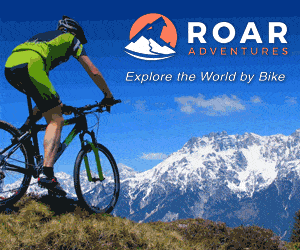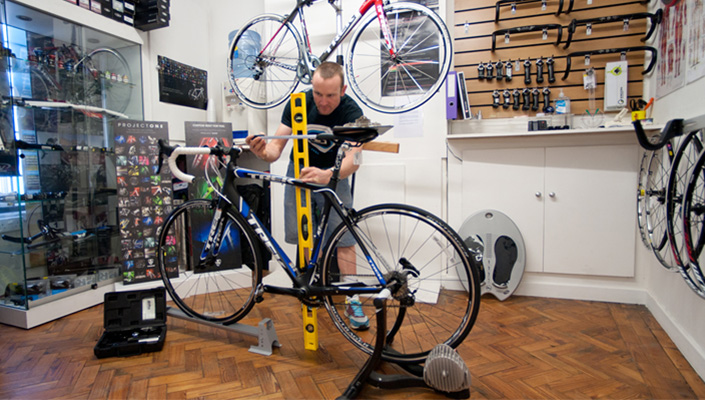
Professional bike fit is key to not only getting the most out of your riding in terms of comfort, efficiency and power, but it also prevents the experience of pain in the back, shoulders and neck. We have covered bike fitting "Bike Fit: Getting saddle height right" by presenting some of the most common techniques for getting your position right.
“The most common error in bike fit is setting the saddle too high.”
The most common error in bike fit is setting the saddle too high. Often a cyclist gets used to a typically too high position, they then measure themselves and apply a saddle height formula but disregard the figures and still set the saddle too high because it just doesn't seem right! From my experience in the bike shop I found that nearly every male road cyclist runs their saddle too high.
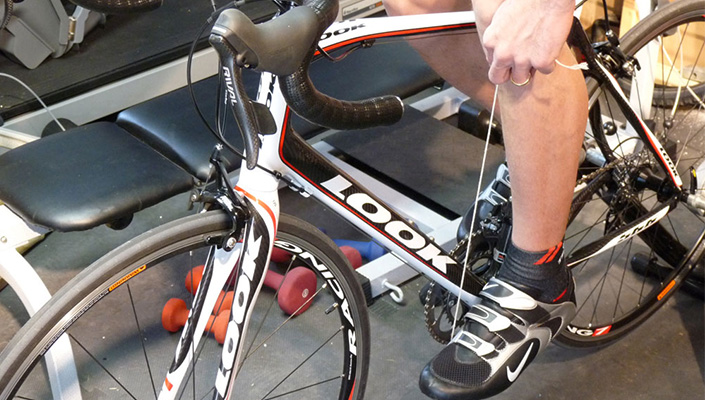
Sitting too high results in a rocking motion, perceived or not, as the body tries to apply power through the entire pedaling rotation. This unstable reaching for the bottom of the stroke is a typical cause of back and hip pain in cyclists. It also results in inefficient pedaling with the toes tipped downwards because there isn't enough reach to flatten the foot. Likewise having a saddle too low results in more strain on the knees and quads. They just end up doing more work than they need to.
If you insist on doing a home fit, measure twice and apply what you find! The best way, as mentioned in our previous article, is to use a goniometer to measure the leg angle as it is not so dependant on individual variations in leg length. Otherwise book in a professional fit with your local bike shop and get it spot-on.

TIP: Vertical saddle position is just one variable to get right. It is also important to position your shoe cleats, (ideally with the ball of your foot directly over the pedal axle), and adjust the saddle fore/aft location. This saddle adjustment can be made by running a plumb line from the knee down through the pedal axle when postioned at 3 o'clock.
Correct bike fitting is only one aspect when it comes to getting maximum power from your pedal stroke. Once you have your position sorted these 5 tips will help you make the most of your tweaked position and allow MAXIMUM POWER!
1. "Heel down, pedal around"
As mentioned already, the most efficient pedaling style is to keep your heels low as you drive through the pedal stroke. "Heel down pedal around" is a common adage for efficient road bike pedaling. This technique can change the way you approach climbing particularly, but is only possible when you have your position sorted.
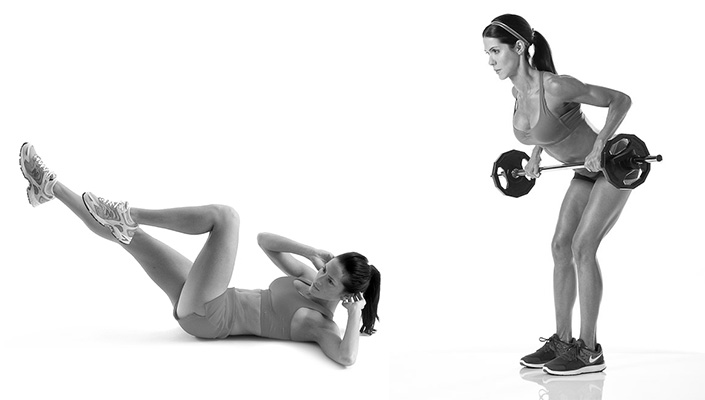
2. Strengthen your core
New tall head tube bike designs are helping cyclists with poor core strength get comfortable. Another way is to work on this area yourself so you are able to get down low and really pump out the power while riding any bike. Ideally a road cyclist should be able to swap from hoods to drops without moving the upper body. This is also often related to shoulder and hand pain as the upper body is carrying all the load compensating for poor core strength and stability.
3. Save the rock'n'roll for Saturday nigh
Rocking left and right is a sure indication that your saddle is too high. This is also often the cause of back pain during and after a decent ride. In terms of power output it means all the energy that goes into rocking side to side is being lost before it gets anywhere near the pedals. Easily fixed by lowering the saddle to the correctly fitted height.
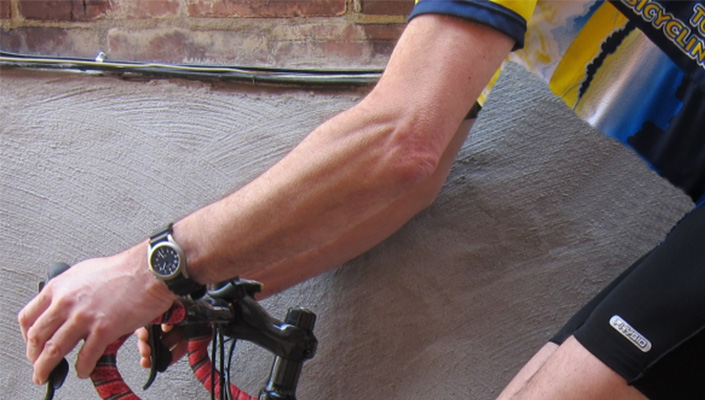
4. It's okay, relax
When setup properly it becomes much easier to keep your upper body relaxed while your legs drive with power. You should have your arms bent and at ease on the hoods or top part of the handlebars. Doing this not only saves all your energy for pedaling, but it means you are absorbing road chatter and impact before it wears out your upper body.
5. All together now
These techniques are valuable for all road cycling conditions, but it is when the road goes up that they really come into their own. Combining a relaxed upper body, efficient heel down pedaling and a stable core will transform how you climb. An additional practise is to keep your body and head straight in-line with the stem, with core engaged, to really get maximum power output.
Cycling gets so much more enjoyable when we are comfortable, relaxed and most importantly, powerful!

